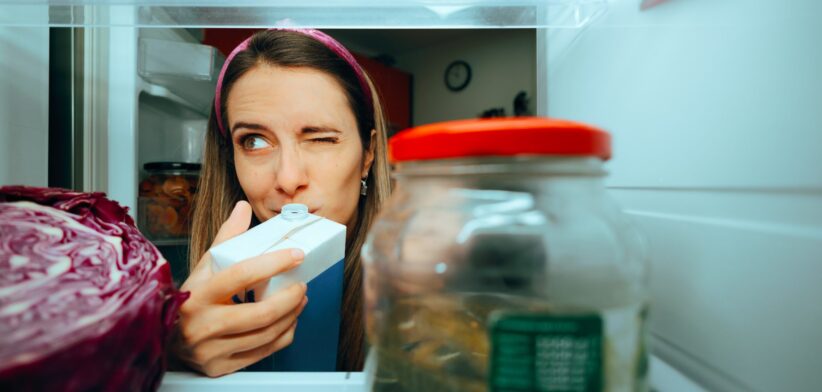Unclear food date labels and storage advice is leading to unnecessary food wastage, with Queenslanders among the most distrusting in the country.
RMIT University research found date labels were widely misused by Australians because they were confusing.
Associate Professor Lukas Parker said about one-third of all food in Australia was either lost or discarded every year, with people over-relying on printed best-before dates, rather than using their senses to self-test.
Associate Professor Parker said use-by dates showed the last day a product was safe to eat, while best-before dates showed peak quality.
He said food should be safe past the best-before date if not damaged, deteriorated or perished.
“While many of the consumers interviewed understood the difference between use-by and best-before dates, they often discarded food when it reached either date.”
Associate Professor Parker said older and retired Australians were less likely to obsess over date labels, while young families were more likely to throw away food once past its best-before or use-by date.
He said date labels were less likely to be perceived as reliable or trustworthy for warmer and more humid climates, like in Queensland and the Northern Territory.
Associate Professor Parker said consumers wanted clear, consistent and easy-to-read information.
“Date labels should be in a large font with contrasting colours so that they are easy to find and interpret.”
He said the study found advice such as “store in a cool, dry place” was interpreted as vague and unhelpful.
Associate Professor Parker said a solution could be labels with practical tips on properly storing food and sealing packaging.
“Including specific temperature guidelines for storage on packaging would help,” he said.
“Particularly in a cost-of-living crisis, people need information on how to properly store and prolong the shelf life of food.”
Associate Professor Parker said buying to eat, rather than to store, was a simple way for consumers to reduce food waste and save money.
“Smaller, more frequent shops is a simple way to reduce your food waste,” he said.
“Having less food in our fridges and pantries means we’re more likely to use products quickly and throw less away.
“We all need to recognise that we waste food. Focus on what you do and what you can do next to reduce it.”








